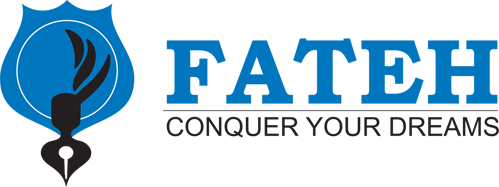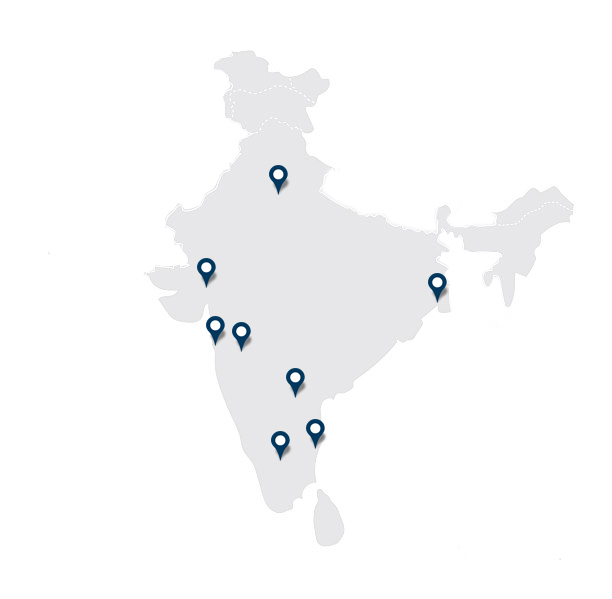Introduction
Over the past decade, the number of Indian students seeking international education has surged, driven by a pursuit of quality learning, global exposure and better career prospects. Among the many countries competing for attention, Canada and Ireland have steadily risen to the top as preferred destinations. Both offer world-class education, vibrant student communities and promising pathways to post-study work and immigration. Yet, when it comes to making a decision between the two, Indian students often find themselves at a crossroads.
While Canada is known for its multiculturalism, sprawling campuses and globally ranked universities, Ireland impresses with its tech-driven economy, close-knit academic networks and unique position as the only English-speaking member of the EU post-Brexit. The debate around Canada vs Ireland for Indian students is not just about rankings or tuition fees; it is about understanding the finer details—those lesser-known nuances that can truly shape one’s educational journey and career trajectory.
In this comparative guide, we move beyond surface-level comparisons to explore what truly matters—living costs, academic culture, visa policies, job markets and more. Whether you are aiming for a STEM degree or aspiring to work in fintech, this guide will help you decode the differences and make an informed, confident choice.
Canada vs Ireland: Popular Courses
When comparing Canada vs Ireland for Indian students, it is essential to go beyond brand names and consider the academic ecosystems that shape each country’s specialisations. The table below comprises of the high-demand courses in each destination, including lesser-known strengths and emerging subject areas that are gaining traction among international students.
| Field of Study | Popular in Canada | Popular in Ireland | Lesser-Known Insight |
|---|---|---|---|
| Computer Science and IT | Highly developed programmes with a focus on AI, machine learning and data analytics; strong ties to tech hubs like Toronto and Vancouver | Emphasis on cybersecurity, software engineering and data science; Dublin hosts top tech giants’ European HQs | Canada’s Waterloo is dubbed the “Silicon Valley of the North”; Ireland is Europe’s fastest-growing data centre market |
| Business and Management | Offers diverse MBA specialisations; strong co-op programmes and practical internships | Known for one-year Master’s degrees with global accreditations (e.g., Trinity Business School, UCD Smurfit) | Ireland’s fintech sector is expanding rapidly, making business analytics and finance particularly relevant |
| Engineering | Robust programmes across civil, mechanical and electrical streams; practical exposure via co-op placements | Niche strengths in biomedical and sustainable energy engineering | Canadian universities like UBC and McGill offer research-heavy degrees; Ireland is home to Europe’s first degree in climate entrepreneurship |
| Health and Life Sciences | Excellent for public health, biotechnology and pharmacology; ample research funding | Renowned for pharmaceutical sciences, healthcare innovation and biomedical research | Ireland is among the top global exporters of pharmaceuticals, enhancing practical exposure for students |
| Hospitality & Tourism | Programmes integrate work placements in major tourism destinations like Banff and Whistler | Strong hospitality education tradition; known for culinary arts and hotel management | Ireland has partnerships with major hotel chains for hands-on training; Canada offers dual diplomas for hospitality management |
With both countries aligning their academic offerings to global industry needs, choosing between them often depends on a student’s career goals and learning preferences. This leads us to the next crucial comparison—Ireland vs Canada: Admission Requirements, where we uncover what it takes to enter these prestigious systems and how Indian students can prepare a strong application.
Ireland vs Canada: Admission Requirements
1. Academic Qualifications
- Canada: Requires a minimum aggregate of 65–70% in Class XII for undergraduate courses and at least a second-class division in bachelor’s for postgraduates.
- Ireland: Accepts students with as low as 60% in Class XII for foundation or diploma routes; postgraduate programmes typically require a 2.1 honours degree or equivalent.
2. English Language Proficiency
- Canada: IELTS (6.5 overall with no band below 6) or TOEFL (minimum 88) is standard. Some institutions also accept PTE or CAEL.
- Ireland: IELTS (6.5 overall with no band below 6) is widely accepted, but many universities accept Duolingo scores, especially for postgraduate study—a lesser-known advantage.
3. Application Timeline & Intakes
- Canada: Major intakes in September (Fall) and January (Winter), with some colleges offering May (Spring) intake. Application deadlines are usually 6–9 months in advance.
- Ireland: Primarily September intake, though some programmes offer January starts. The centralised application system (CAO) is used for undergrads, while postgrads apply directly to universities.
4. Statement of Purpose (SOP) & References
- Both countries place significant weight on the SOP and academic references. Canada often requires a detailed explanation of career goals, while Irish institutions focus more on clarity of academic motivation and future plans.
5. Additional Assessments
- Canada: Competitive programmes (like MBA or Computer Science) may require GRE or GMAT scores.
- Ireland: Few courses require aptitude tests, making it a smoother entry point for students looking to avoid standardised testing.
Cost of Studying in Canada vs Ireland
For most Indian students, affordability is a major factor when weighing the benefit. In the debate on Canada vs Ireland for Indian students, understanding the true cost—beyond tuition—is essential. While both countries offer competitive fees, hidden costs such as student levies, living expenses and healthcare often tip the scales. Exploring popular courses in Ireland can give you insight into which programs offer the best value and career prospects in this increasingly attractive destination.
| Category | Canada | Ireland | Key Insights |
|---|---|---|---|
| Undergraduate Tuition Fees (Annual) | CAD 20,000–35,000 (approx. ₹12–21 lakh) | EUR 10,000–25,000 (approx. ₹9–22 lakh) | Canadian public universities may have higher fees for certain professional courses. Irish tuition often includes student facilities fees (approx. EUR 1,500/year). |
| Living Expenses (Annual Average) | CAD 10,000–15,000 | EUR 7,000–12,000 | Cost of living varies significantly by city; Toronto and Vancouver are among the priciest in North America, while Irish cities like Cork and Galway are more budget-friendly than Dublin. |
| Student Health Insurance | CAD 600–900/year (varies by province) | EUR 500–1,000/year | In some Canadian provinces like Ontario, international students are not covered under public health plans and must purchase private insurance. Ireland mandates private health coverage, which must be renewed yearly for visa compliance. |
| Miscellaneous Costs | CAD 1,000–2,000 | EUR 1,200–2,000 | Includes books, transport and student council fees. Some Irish universities offer digital access over physical textbooks, reducing annual material costs. |
Factoring in the shorter duration of undergraduate degrees in Ireland and the slightly lower living costs outside major cities, the cost comparison becomes a little more complex.. It is also worth noting that many Irish institutions offer merit-based scholarships specific to Indian students—something often underutilised due to a lack of awareness.
As we shift our focus, let us now zoom in on a key decision-making factor for many Indian graduates—the cost of studying a postgraduate programme in Canada vs Ireland, which comes with a well defined set of financial and academic considerations.
Cost of Studying a Postgraduate Program in Canada vs Ireland
Postgraduate education is a strategic investment, especially for Indian students aiming to gain international work experience or immigration advantages. When evaluating Canada vs Ireland for Indian students, tuition fees are only part of the story. Duration of study, availability of scholarships and scope for earning while studying also play a decisive role. Most students opt for the Ireland September intake, which offers the widest range of programs and better integration into campus life.
| Expense Category | Canada | Ireland | Lesser-Known Insights |
|---|---|---|---|
| Tuition Fees (Annual Average) | CAD 15,000 – 30,000 (approx. ₹9–18 lakh) | EUR 10,000 – 22,000 (approx. ₹9–20 lakh) | Canadian PG diplomas are often cheaper than Master’s degrees, making them a budget-friendly alternative; in Ireland, many MSc programmes are just one year, reducing total cost. |
| Course Duration | 1–2 years (depending on degree type) | 1 year (standard full-time Master’s) | Irish Master’s programmes allow quicker entry into the job market; Canada’s two-year format, however, benefits post-study work visa eligibility |
| Scholarships | Strong options, especially for research-based degrees; province-specific funding available | Wide range of merit-based scholarships for Indian students (e.g., Government of Ireland International Education Scholarships) | Many students miss out on Irish scholarships due to early deadlines and limited promotion outside Europe. |
| Part-Time Work Allowance | 20 hours/week during term, full-time during breaks | Same as Canada; however, availability of part-time jobs varies by city and course schedule | Indian students in cities like Limerick or Galway may find less competition for part-time roles compared to major cities like Toronto or Dublin. |
While Ireland’s shorter Master’s programmes can offer a cost-effective route for those with tight budgets or time constraints, Canada’s structured postgraduate pathways and wider programme choices may appeal to those planning a longer academic or professional stay.
Canada vs Ireland: Student Visa
1. Visa Type and Application Process
- Canada: Students require a Study Permit, which is not technically a visa but acts as one when paired with a Temporary Resident Visa (TRV). Applications can be made through the SDS (Student Direct Stream), designed to fast-track processing for Indian students.
- Ireland: The D Study Visa is required for full-time programmes exceeding three months. It is a straightforward online application, followed by biometric enrolment.
2. Processing Time
- Canada: With SDS, processing can take as little as 20 calendar days, provided all documentation is accurate and upfront. Non-SDS applications may take longer, especially during peak seasons.
- Ireland: Typically processed in 4–8 weeks, though timelines vary by embassy workload and student profile. Unlike Canada, Ireland does not currently offer an express processing stream.
3. Proof of Funds
- Canada: Requires evidence of CAD 20,635 for one year of living expenses, apart from tuition. A GIC (Guaranteed Investment Certificate) of the same amount is mandatory under SDS.
- Ireland: Applicants must show proof of EUR 10,000 in personal funds (recently revised from EUR 7,000), deposited in an Irish-recognised bank account or an account in the student’s name.
4. Visa Approval Nuances
- Canada assesses the “intent to return” more stringently, which means a vague SOP or inconsistent financials can trigger rejections.
- Ireland focuses on financial stability and clear academic progression. Students with backlogs or academic gaps are more likely to succeed if they can clearly explain their trajectory.
5. Work Rights and Visa Extension
- Both countries allow 20 hours of work per week during academic sessions and full-time during scheduled breaks.
- Canada offers easier extensions and pathways to permanent residency under various provincial nominee programmes (PNPs). Ireland provides a two-year post-study work visa under the Third Level Graduate Scheme.
Popular Jobs in Canada and Ireland
1. Data Analysts and Data Scientists
- Canada: With Toronto being a North American AI hub, data professionals are in huge demand. Companies like Shopify and RBC are consistently recruiting analytics graduates.
- Ireland: Dublin’s thriving fintech and pharma sectors rely heavily on data specialists. Graduates often find roles at global firms such as Accenture, Mastercard and Novartis.
2. Healthcare Professionals
- Canada: Nurses, medical lab technologists and public health workers are highly sought after, especially in provinces like British Columbia and Nova Scotia.
- Ireland: There is a long-standing shortage of nurses, especially in rural hospitals. Indian students with healthcare backgrounds often find accelerated routes to employment and residency.
3. Software Engineers and Developers
- Canada: The tech industry is booming in cities like Montreal and Vancouver. Knowledge of cloud computing and full-stack development adds a competitive edge.
- Ireland: As the European HQ for Google, Facebook and LinkedIn, Ireland offers direct entry into elite tech ecosystems for skilled graduates.
4. Business and Finance Professionals
- Canada: MBAs and finance graduates often land roles in banking, consulting and supply chain management, particularly in Ontario and Alberta.
- Ireland: Dublin’s International Financial Services Centre (IFSC) is a European finance nerve centre, with strong demand for risk analysts and compliance officers.
5. Engineering and Construction
- Canada: Civil, electrical and mechanical engineers are in shortage lists across several provinces, boosting employability and immigration points.
- Ireland: The government’s focus on infrastructure development has triggered a surge in demand for civil and environmental engineers.
6. Pharmaceutical and Biotechnology Experts
- Canada: Biotech hubs in Quebec and Ontario are opening up new opportunities in vaccine research and biomanufacturing.
- Ireland: Home to nine of the world’s top ten pharma companies, Ireland is ideal for students from pharmaceutical sciences, bioengineering or medical chemistry backgrounds.
Scholarships to Study in Canada and Ireland
1. Vanier Canada Graduate Scholarships (VCGS) – Canada
- Highly competitive and prestigious, this scholarship supports doctoral-level students in research-based programmes.
- Offers CAD 50,000 per year for up to three years.
- Lesser-known insight: Indian students pursuing inter-disciplinary studies in health, natural sciences or engineering often have stronger candidacy due to research funding partnerships between Canadian institutions and Indian agencies like DST and UGC.
2. Ontario Graduate Scholarship (OGS) – Canada
- Available to students enrolled in Master’s or PhD programmes in Ontario.
- Valued at CAD 15,000 annually.
- Tip: Strong academic scores (80% or higher) and a focused statement of purpose are critical. Some Ontario universities waive application fees for scholarship applicants.
3. Government of Ireland International Education Scholarships (GOI-IES)
- Offers a €10,000 stipend along with a full tuition fee waiver for one year of study.
- Open to students applying for taught Master’s programmes across Irish higher education institutions.
- Lesser-known fact: Indian students consistently form one of the top recipient groups under this scheme, especially in ICT, biotechnology and business analytics.
4. Trinity College Dublin – Global Excellence Scholarships
- Awarded to high-achieving students from non-EU countries, with values up to €5,000.
- These are merit-based and often require an early application to qualify.
- Insider tip: Departments may nominate candidates internally, so building strong rapport with academic mentors or admission officers can increase your chances.
5. University of British Columbia (UBC) International Leader of Tomorrow Award – Canada
- Focused on undergraduate students who show leadership and community involvement.
- Offers need-based financial support for tuition, living expenses and more.
- Unique angle: For Indian students active in social initiatives or non-profits, this award values impact as much as academic achievement.
Ireland vs Canada: Climate
Temperature Extremes
- Canada: Winters can be harsh, especially in cities like Winnipeg, Ottawa and Calgary, where temperatures often dip below -20°C. Coastal cities like Vancouver are milder, rarely going below 0°C.
- Ireland: Rarely experiences extreme temperatures. Winters are damp but moderate, typically staying between 0°C and 8°C. Snowfall is uncommon in most regions.
2. Rainfall and Sunshine
- Ireland: Known for its persistent drizzle and overcast skies, especially in the west. Dublin sees around 130 rainy days a year.
- Canada: Sunshine varies wildly—Calgary enjoys over 300 sunny days annually, while Vancouver sees long stretches of grey during winter.
3. Humidity and Air Quality
- Ireland: Maritime climate ensures higher humidity but also cleaner, fresher air.
- Canada: Dryer in the interior provinces, with better air quality than many urban Indian centres. However, forest fire smoke in summer months is a growing concern in western Canada.
4. Seasonal Transitions
- Ireland’s seasons are subtle, with gradual shifts. Canada’s are more dramatic—perfect for those who want to experience a true white Christmas or autumn foliage.
Conclusion
FAQs on Canada vs Ireland For Indian Students
Canada offers a high quality of life, strong public infrastructure and multicultural urban centres. Ireland is smaller, more compact and generally easier to navigate, with a warm social culture and vibrant student communities. Indian students may find Ireland’s milder climate and less extreme winters more comfortable. However, Canada’s expansive Indian diaspora and established cultural networks can ease homesickness and social transition.
Canada has one of the most structured and transparent pathways to Permanent Residency (PR) through systems like Express Entry and Provincial Nominee Programmes (PNPs), making it more accessible for international graduates. Ireland also offers PR options, but the process is longer and more employer-dependent. Generally, you must work for five years before applying for long-term residency.
Yes, especially for those seeking careers in sectors like IT, pharmaceuticals, AI or fintech. Ireland is the European base for global firms like Google, Meta, Pfizer and Apple, providing strong placement opportunities.
No, Ireland's PR process is more time-consuming and less streamlined than Canada’s. You must typically work for five years on a valid work permit before becoming eligible for PR. Ireland does not have a points-based PR system. The decision is more discretionary and often influenced by employer support and economic contribution.
Yes, but settling in Ireland involves a gradual process. Indian students can stay back for up to 2 years on a post-study work visa. If employed during this time, they can transition to a Critical Skills Employment Permit, which may lead to long-term residency. To settle in Ireland, staying employed continuously is crucial. Gaps in employment or switching from non-critical to general permits may reset your PR timeline.


